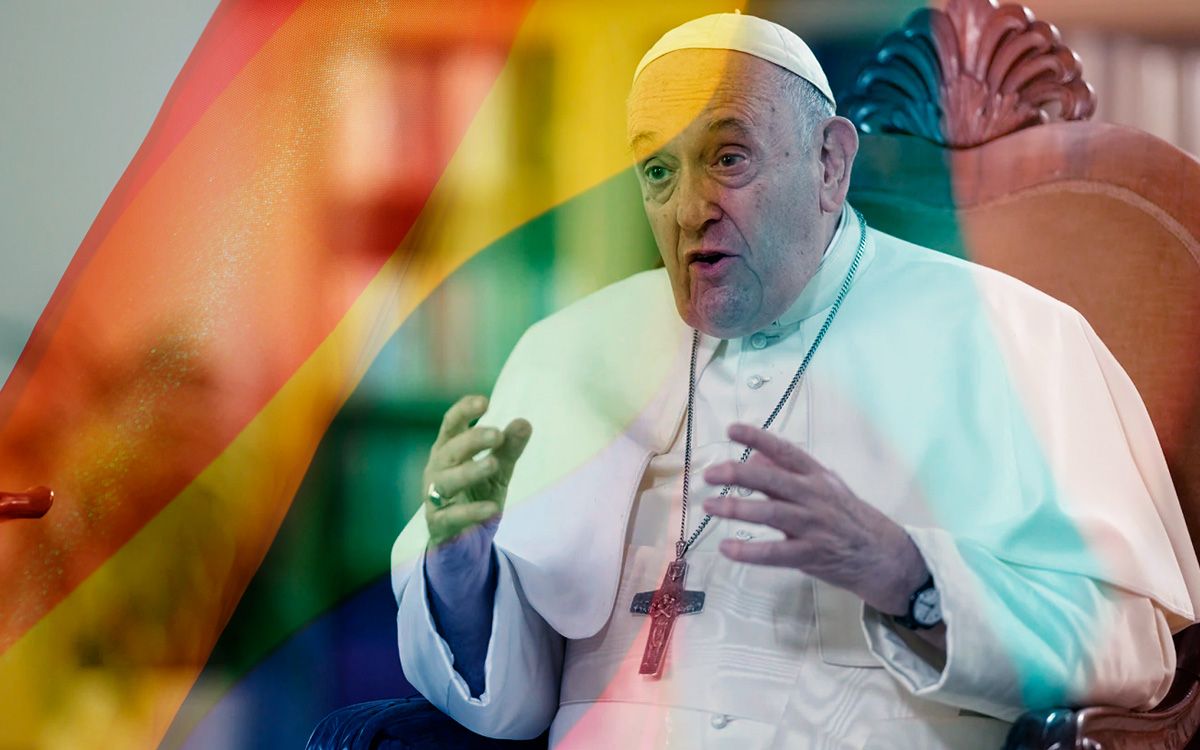
Towards a More Inclusive Church: Catholicism and LGBTQ+
|
|
Time to read 5 min
|
|
Time to read 5 min
The intersection of Catholicism and LGBTQ+ issues is a complex and often contentious topic that has sparked passionate debate within and outside the Church. This blog aims to provide a respectful and informative overview of the subject, exploring the historical context, current Church teachings, and the experiences of LGBTQ+ Catholics.
The Catholic Church has a long history of addressing human sexuality, with teachings rooted in scripture and tradition. While homosexuality was not explicitly condemned in earlier centuries, attitudes began to shift during the Victorian era. The Catechism of the Catholic Church, published in 1992, states that homosexual acts are "intrinsically disordered" and contrary to natural law.
However, it's essential to acknowledge that historical interpretations of scripture and theology have evolved over time. The Church's understanding of human sexuality, like many other doctrines, has undergone development.
The Catholic Church maintains that while all individuals, regardless of sexual orientation, possess inherent dignity and worth, homosexual acts are considered sinful. The Church encourages celibacy for LGBTQ+ individuals and offers pastoral care to those struggling with same-sex attraction.
It's important to note that this stance is a source of significant pain and alienation for many LGBTQ+ Catholics. The Church's emphasis on conversion therapy and its opposition to same-sex marriage have further deepened the divide between the institution and its LGBTQ+ members.
Despite the Church's official stance, countless LGBTQ+ individuals continue to find spiritual fulfillment and community within Catholicism. Many have formed supportive groups and ministries, offering a sense of belonging and acceptance.
However, the experiences of LGBTQ+ Catholics vary widely. Some feel welcomed and affirmed by their parishes, while others face discrimination, exclusion, and even condemnation. The fear of rejection often leads to silence and a sense of isolation.
The complex relationship between Catholicism and LGBTQ+ issues demands open and honest dialogue. It is essential to acknowledge the pain and suffering experienced by LGBTQ+ Catholics while also respecting the Church's teachings.
A path forward might involve:
Ultimately, the goal should be to create a Church where all individuals feel loved, accepted, and valued, regardless of their sexual orientation or gender identity.
Pope Francis has undoubtedly brought a new tone to the Catholic Church's conversation about LGBTQ+ individuals. His emphasis on mercy, inclusion, and accompaniment has resonated with many, both within and outside the Church.
While the Church's official doctrine on same-sex relationships remains unchanged, Pope Francis has consistently emphasized the importance of welcoming and accompanying LGBTQ+ individuals. His statements, such as "Who am I to judge?" regarding gay priests, have opened up a space for more compassionate dialogue.
However, the Pope's approach has not been without its challenges. His decision to reaffirm the Church's teaching on same-sex marriage, coupled with his more inclusive language, has created a sense of ambiguity for many. Some argue that his words do not align with concrete actions, while others believe his approach represents a significant step forward.
Pope Francis' words have offered hope and encouragement to many LGBTQ+ Catholics. His emphasis on mercy and accompaniment has allowed some to feel more welcomed and accepted within the Church. However, the lack of concrete changes in Church policy continues to be a source of pain and frustration for others.
To reconcile the Church's teachings with the lived experiences of LGBTQ+ Catholics, a nuanced and ongoing conversation is essential. This includes:
Ultimately, the goal is to create a Church where all individuals feel loved, accepted, and valued, regardless of their sexual orientation or gender identity.
The journey of LGBTQ+ Catholics is often marked by significant challenges. While there have been shifts in tone and attitude within the Church, the lived experiences of many LGBTQ+ individuals continue to be marked by pain, isolation, and a sense of being marginalized.
One of the most profound challenges faced by LGBTQ+ Catholics is internalized stigma. The Church's teachings, often reinforced by family and community, can lead to feelings of shame, guilt, and a belief that their identity is inherently sinful. This can have devastating consequences for mental health and well-being.
Many LGBTQ+ Catholics experience discrimination and exclusion within their parishes and communities. This can manifest in various forms, including:
The scarcity of LGBTQ+ affirming ministries and resources within the Catholic Church can contribute to feelings of isolation and loneliness. Many LGBTQ+ Catholics long for spaces where they can openly express their faith and identity without fear of judgment.
For many LGBTQ+ Catholics, reconciling their faith with their sexual orientation or gender identity is a constant struggle. They often find themselves caught between a desire to remain connected to their faith and the need to affirm their authentic selves.
Despite these challenges, countless LGBTQ+ Catholics demonstrate remarkable resilience and faith. Many have found supportive communities, both within and outside the Church, where they can find acceptance and belonging. Additionally, the growing visibility of LGBTQ+ Catholics is creating a sense of hope and possibility for future generations.
The relationship between Catholicism and LGBTQ+ issues is a complex and multifaceted one. While the Church's official stance on same-sex relationships remains a significant point of contention, the experiences and perspectives of LGBTQ+ Catholics cannot be ignored.
To foster a more inclusive and compassionate Church, it is imperative to engage in open and honest dialogue. This includes acknowledging the pain and suffering experienced by LGBTQ+ Catholics, while also respecting the Church's teachings. Building bridges requires empathy, understanding, and a commitment to finding common ground.
The journey towards greater inclusion will undoubtedly be challenging, but it is essential for the vitality and witness of the Catholic Church. By embracing diversity, fostering a culture of welcome, and advocating for the dignity and rights of all individuals, the Church can move towards a future where LGBTQ+ Catholics feel fully embraced and affirmed in their faith.